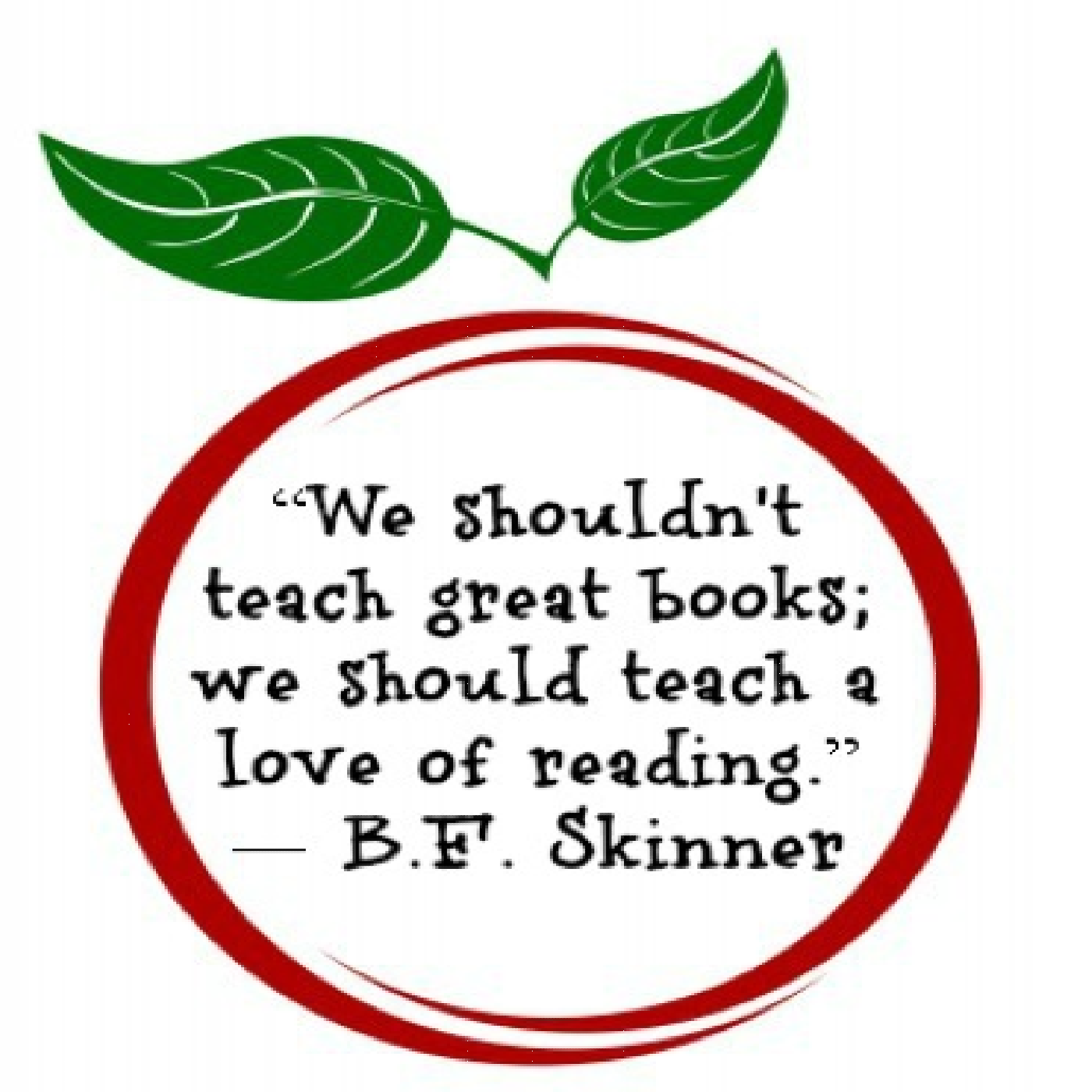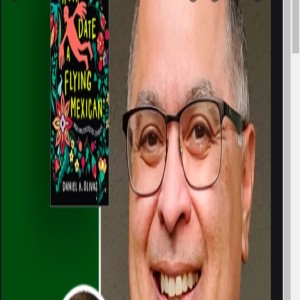
26K
Downloads
304
Episodes
The Chills at Will Podcast is a celebration of the visceral beauty of literature. This beauty will be examined through close reads of phrases and lines and passages from fiction and nonfiction that thrills the reader, so much so that he wants to read again and again to replicate that thrill. Each episode will focus on a different theme, such as "The Power of Flashback," "Understatement," "Cats in the Cradle," and "Chills at Will: Origin Story."
Episodes

Tuesday Mar 01, 2022
Tuesday Mar 01, 2022
Episode 106 Notes and Links to Daniel Olivas’ Work
On Episode 106 of The Chills at Will Podcast, Pete welcomes Daniel Olivas, and the two talk about…well, everything. They discuss, among other things, Daniel’s childhood in Los Angeles, pochismo, formative and unforgettable reads, his family’s stories, his work as a lawyer and his myriad writing and genres, the difference between fiction and nonfiction with regard to truth, as well as his just-released short story collection.
Daniel A. Olivas is the author of ten books and editor of two anthologies. His books include How to Date a Flying Mexican: New and Collected Stories (University of Nevada Press, 2022), The King of Lighting Fixtures: Stories (University of Arizona Press, 2017), Crossing the Border: Collected Poems (Pact Press, 2017), and Things We Do Not Talk About: Exploring Latino/a Literature through Essays and Interviews (San Diego State University Press, 2014).
Daniel's plays have been produced for the stage and readings by Playwrights' Arena, Circle X Theatre Company, and The Road Theatre Company.
Widely anthologized, Daniel has written for many publications including the New York Times, The Guardian, El Paso Times, Los Angeles Times, Los Angeles Review of Books, Huffington Post, High Country News, La Bloga, BOMB, and the Jewish Journal.
Buy Daniel Olivas' How to Date a Flying Mexican
Daniel Olivas’ Page at Los Angeles Review of Books
Waiting for Godinez Play Information and Praise
"Turning the Page"-Daniel's beautiful tribute to his father from Stanford Magazine
At about 2:50, Daniel gives his family background, including his father’s experiences with writing and education, as well as Daniel’s schooling and educational experiences
At about 10:10, Daniel responds to Pete’s questions about writing and artistic influences for Daniel’s father
At about 11:40, Daniel talks about bilingualism in his family and a meaningful comment from his mother about his writing
At about 16:30, Daniel talks about family roots in Ocotlán, Jalisco, and its influence on his writing
At about 17:40, Daniel highlights his fictionalized city of Dos Cuentos and the ways in which he uses the city in his work
At about 18:50, Daniel talks about early reviews of his story collection and the ways in which they often add “trigger warnings” and what those warnings reinforce for him
At about 19:40, Pete asks Daniel about John Fante and Daniel talks about Fante as a great chronicler of the immigrant experiences
At about 21:45, Pete and Daniel talk about shared roots in Jesuit high schools and Daniel gives background on connections to Father Greg Boyle
At about 23:30, Daniel responds to Pete’s questions about important texts that Daniel gravitated to, as Daniel talks about how long it took him to think about writing himself and being inspired by Juan Rulfo, Sandra Cisneros, and Rivera’s And the Earth Did Not Devour Him, and laments missing taking a class with José Antonio Burciaga
At about 26:00, Pete and Daniel fanboy over Villarreal’s Pocho, and Daniel talks about the evolving meanings of “pocho”
At about 29:40, Daniel talks about “shaming” over the ways that Mexican Catholic customs were manifested
At about 32:25, shout out to Pete’s beloved uncle
At about 33:30, Pete wonders about turning points in Daniel’s route to becoming a professional writer, including early publication with The Stanford Chaparral, and unfortunate grief bringing inspiration through his first novel dealing with joy and pain
At about 40:30, Daniel details the publication of Assumption and Other Stories with Bilingual Press
At about 41:15, Daniel talks about how his career trajectory and writing style may differ from what his work would have been like had he gone the MFA route; he also quotes Stewart Dybek
At about 43:00, Daniel talks about keeping his work fresh
At about 44:30, Daniel references an article he wrote for The Guardian upon the publication of American Dirt, as well as a telling quote from Luis Alberto Urrea
At about 45:40, Daniel references two story from the recent collection that highlight the Trump years
At about 47:15, Daniel responds to Pete’s slight misunderstanding about the differences in writing for law and for fiction
At about 50:25, Pete wonders if Daniel can point out any renderings of the law that have rung true for him
At about 53:50, Pete references a chilling Law & Order episode, and Daniel talks about parallels to Trump and the events of recent years
At about 58:50, Daniel talks about how he chose the stories for his latest collection and his mindset in choosing “old” and newer stories
At about 1:01:05, Daniel talks about reading his work spanning so many years and judging any “evolution” in his writing
At about 1:02:00, Daniel asks Pete his thoughts on whether Daniel’s work reads as similar throughout the years
At about 1:04:30, Daniel references “Later Days,” an early “cynical” story of his curated by Bruce Handy
At about 1:07:30, Daniel recollects some interesting childhood reading and Daniel talks about the reading connection to his later writing
At about 1:08:25, Pete points out connections between the reading histories of Tod Goldberg and Daniel
At about 1:08:55, Daniel talks about the short story collection and its dedication and connections to Luis Alberto Urrea’s Hummingbird’s Daughter
At about 1:11:20, Daniel talks about an upcoming article for Alta Journal discussing Natalie Diaz’s “Postcolonial Love Poem”
At about 1:12:20, Daniel says he’ll accept any comparisons to Franz Kafka or Garcia Marquez, and talks about Dagoberto Gilb, A Parrot in the Oven by Victor Martinez, Borges, Yxta Maya Murray, and others as inspirations
At about 1:15:25, Daniel makes a comparison between his work (especially with short stories) and the life of a character actor
At about 1:17:20, Pete shouts out an incredible piece by Borges- “The Gospel According to Mark”
At about 1:21:45, Daniel talks about storylines in his writing and ideas of morality
At about 1:24:20, Daniel explains “political writing” that is overtly not political
At about 1:25:05, Pete makes parallels between Toni Morrison’s one short story’s headlines
At about 1:27:00, Pete highlights the skillful magical realism of the title short story, and Daniel explains the balance between the two parts of the phrase
At about 1:31:00, Pete and Daniel discuss themes of agency for women, with Conchita as an example
At about 1:34:00, Pete highlights a skillful line in the title story, and Daniel responds to Pete’s questions about using second person and present tense
At about 1:36:15, Daniel discusses the importance of prioritizing the title before getting into the story’s nuts and bolts
At about 1:38:25, Pete and Daniel discuss minimalism and dichos in Daniel’s writing
At about 1:45:00, Pete shouts out “Belen” as possibly his favorite story and compares Belen’s situation to that of the the narrator in Antonya Nelson’s “In the Land of Men”
At about 1:47:00, Pete asks about the cool names used in the collection
At about 1:49:40, Quezatcoatl is discussed as featured in the short story collection
At about 1:51:20, Pete asks Daniel about a hilarious and deep turn-of-phrase in discussing evil and history, as Daniel discusses some awkward conversations with Hollywood types oversimplifying race for financial purposes
At about 1:54:55, Daniel reads from the title story
At about 1:59:45, Pete wonders about future projects for Daniel
At about 2:02:00, Daniel talks about the events for the book’s launch, and discusses a nice pre-release review from Buzzfeed
You can now subscribe to the podcast on Apple Podcasts, and leave me a five-star review. You can also ask for the podcast by name using Alexa, and find the pod on Stitcher, Spotify, and on Amazon Music. Follow me on IG, where I’m @chillsatwillpodcast, or on Twitter, where I’m @chillsatwillpo1. You can watch other episodes on YouTube-watch and subscribe to The Chills at Will Podcast Channel. Please subscribe to both my YouTube Channel and my podcast while you’re checking out this episode.
This is a passion project of mine, a DIY operation, and I’d love for your help in promoting what I’m convinced is a unique and spirited look at an often-ignored art form.
The intro song for The Chills at Will Podcast is “Wind Down” (Instrumental Version), and the other song played on this episode was “Hoops” (Instrumental)” by Matt Weidauer, and both songs are used through ArchesAudio.com.
Please tune in for Episode 107 with Dr. Benjamin Gilmer, a family medicine physician in Fletcher, North Carolina. He is an Albert Schweitzer Fellow for Life and associate professor in the department of family medicine at the University of North Carolina School of Medicine at Chapel Hill, and his new book, The Other Dr. Gilmer, is a heart wrenching true story, with part of the story covered in a 2013 "This American Life" episode that has more than 10 million views to date.
The episode airs on Thursday, March 3.

No comments yet. Be the first to say something!